Welcome to PreCrack! We’re here to provide you Information about all best topics in their simplest manner that may help you to Crack UPSC CS Prelims Exam.
Naresh Soni
Brahmos Cruise Missile to be Deployed on INS Jatayu, New Naval Base at Minicoy Island – Everything You Need to Know
Table of Contents
Introduction to Indian Navy’s New Naval Base in Minicoy Island UPSC
Welcome to PreCrack! Recently, there was a news in the trend that Minicoy Island of Lakshadweep was about to see some advance deployment of advanced BrahMos Cruise Missle in Newly commissioned Naval Base ‘INS Jatayu’ which is established in Minicoy Island. Also, in the Arabian Sea, there was a deployment of newly commissioned INS Jatayu with features BrahMos Missile. This is a great development related to Indian Defense & Security matter.
In India, if you are preparing for major competitive examinations, then knowing about this major development will help you to cover your UPSC Current Affairs Preparation. If you are preparing for UPSC civil Service Examinations & also wants to know about this new defence related development of Deployment of INS Jatayu as a gatekeeper of Arabian sea for India, then this blog have provided you all the details about this topic.
So, let’s start

Also Read | X, Y, Y+, Z, Z+, SPG Types of Security Categories in India
Why Indian Navy’s New Naval Base in Minicoy Island is in the news?
The Indian Navy’s new naval base in Minicoy Island, INS Jatayu, is making headlines because it (INS Jatayu, New Naval Base of Indian Navy) is recently deployed at Minicoy Island. it plays a crucial role in strengthening India’s security in the Indian Ocean Region. This base is getting upgrades as part of a long-term plan, including advanced radar systems, jetties, airfields, and powerful BrahMos supersonic cruise missiles.
The move is significant as it comes in response to China’s growing naval activities in the Indian Ocean. Minicoy Island’s location is strategic, close to important Sea Lanes of Communication (SLOC), and it acts as a deterrent against potential threats.
The base, referred to as a “watch-keeper” at the entrance of the Arabian Sea, is essential for safeguarding India’s maritime interests amid changing global situations and emerging challenges in the region. The upgrades at INS Jatayu highlight India’s commitment to bolstering its naval capabilities for greater security.
Source – The Hindu
What is Minicoy Island? – About Minicoy Island UPSC
Minicoy Island Overview UPSC
Minicoy Island, the southernmost island of Lakshadweep, is located 398 km southwest of Kochi. Positioned between 8° 15′ and 8° 20′ N latitude and 73° 01′ and 73° 05’ E longitude, the crescent-shaped island spans 4.80 sq km, with elevations ranging from 2 to 4 meters above sea level. The island boasts a vast lagoon, measuring 30.60 sq km, on its western side.
Minicoy Island Photos
Tourist Attractions and Culture at Minicoy Island
Minicoy offers attractions such as a historic lighthouse built in 1885, villages, tuna canning factories, and beautiful beaches equipped with bathing huts. The island’s distinct culture is reflected in carefully arranged villages called ‘Avah,’ each with its own internal organization headed by a Moopan.
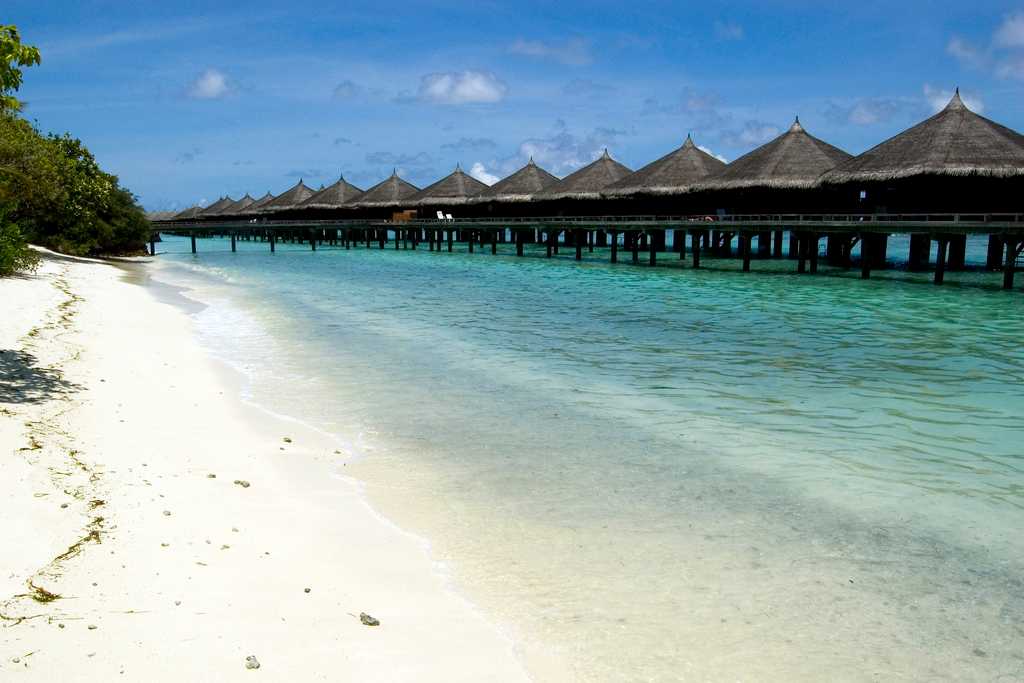
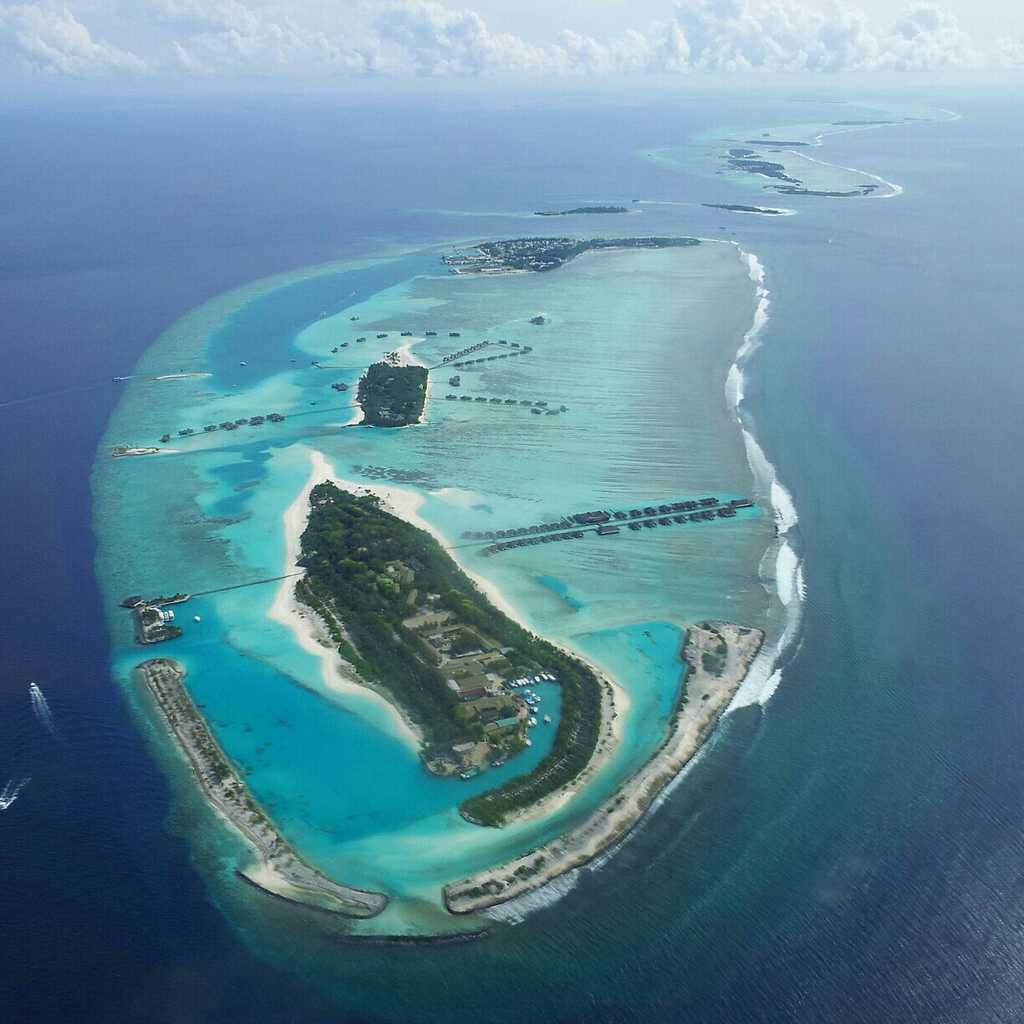
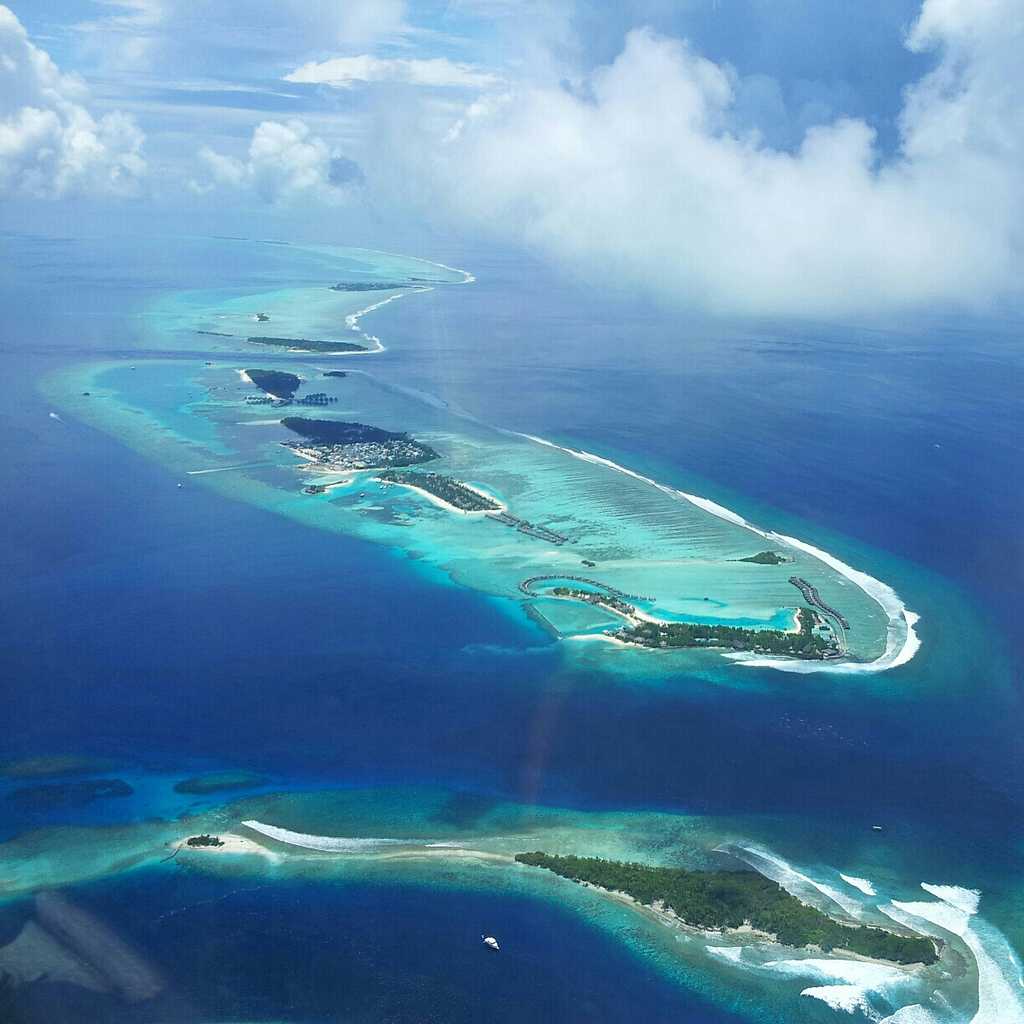

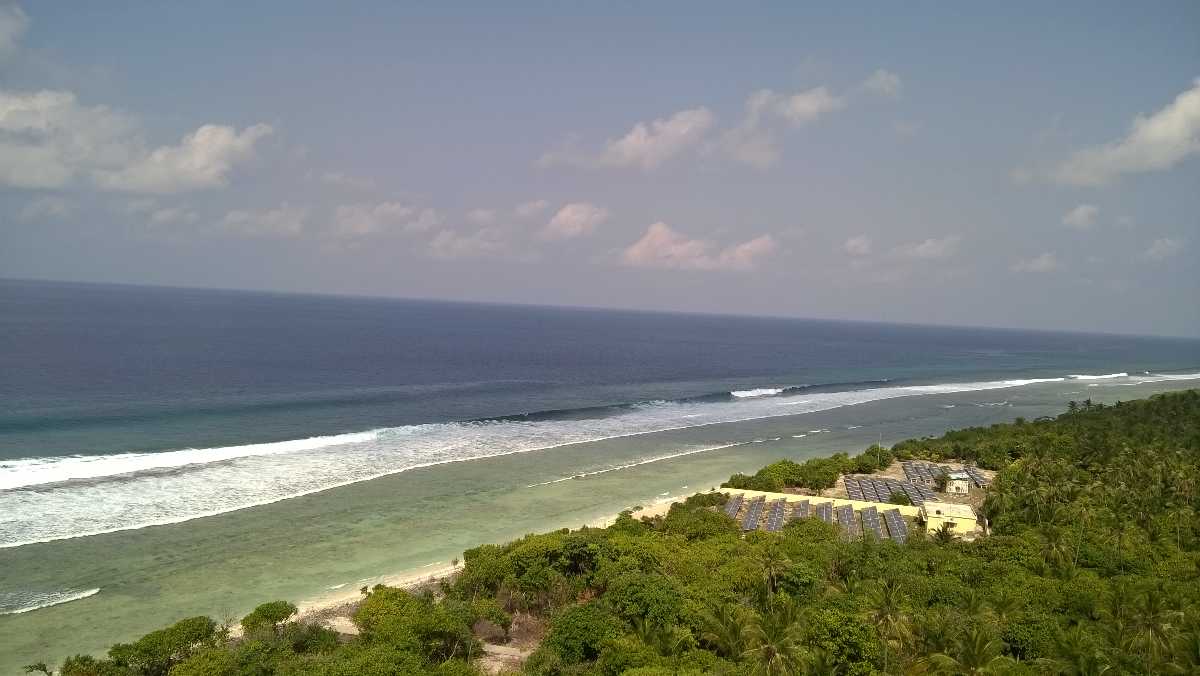
With 10 villages, Minicoy showcases vibrant folk dances like ‘Lava,’ ‘Thaara,’ ‘Dandi,’ ‘Fuli,’ and ‘Bandiya.’ Boat modeling, adorned houses, and swing cots add to the island’s rich cultural tapestry.
Language, Climate, and Island Statistics
Languages spoken include Hindi, English, Malayalam, and Mahal, with Mahal being a linguistic minority. The climate mirrors that of Kerala, experiencing a hot period from March to May. Monsoons prevail from May to September, restricting boat movements.


Minicoy, with a 2011 population of 10,447, has a density of 2,163 per sq km. Accessible by air and sea from India’s southwest coast, it is located 398 km from Kochi. The literacy rate is an impressive 93.01%.
10 Key Facts about Minicoy Island UPSC
We have added 10 key facts about Minicoy Island Below –
| Facts about Minicoy Island | |
| Facts | Description |
| Location | Southernmost island of Lakshadweep, 398 km southwest of Kochi |
| Geographical Area | 4.80 sq km |
| Lagoon Area | 30.60 sq km |
| Elevation | 2-4 meters above sea level |
| Notable Landmark | Historic lighthouse constructed in 1885 |
| Villages | 10 villages with unique cultural aspects |
| Languages Spoken | Hindi, English, Malayalam, and Mahal |
| Climate | Similar to Kerala, hot period from March to May |
| Monsoon Season | May to September, restricting boat movements |
| Population (2011) | 10,447 |
| Literacy Rate | 93.01% |
How many Islands are there in Lakshadweep?
Lakshadweep, India’s smallest Union Territory, comprises 12 atolls, three reefs, and five submerged banks. Spread across 32 sq km, it consists of 10 inhabited islands, 17 uninhabited islands with attached islets, four newly formed islets, and 5 submerged reefs.
The islands, including Kavaratti, Agatti, and Minicoy, are situated 220 to 440 km from Kochi. With a lagoon area of 4,200 sq km and significant economic zones, Lakshadweep is a substantial territory. The 2011 Census recorded a population of 64,429, predominantly Muslim, engaged in fishing, coconut cultivation, and coir twisting, with tourism emerging as a growing industry.
These are the inhabited islands of lakshadweep-
- Kavaratti
- Agatti
- Amini
- Kadmat
- Kiltan
- Chetlat
- Bitra
- Andrott
- Kalpeni
- Minicoy
Strategic Importance of this New Naval Base in Minicoy Island
INS Jatayu naval base on Minicoy Island holds strategic significance for India:
1. Enhanced Monitoring and Security
- Nine Degree Channel: Minicoy’s location near the Nine Degree Channel, a critical shipping lane for global trade, allows India to monitor maritime traffic more effectively. This helps with:
- Anti-piracy operations: The Indian Navy can better deter and respond to pirate activity that could disrupt trade.
- Surveillance: The base can keep an eye on movement of vessels in the region, including those of interest.
2. Strategic Counter
- China’s Growing Influence: The new base is seen as a strategic counter to China’s growing military presence in the Indian Ocean Region. China has been actively building ties with countries like the Maldives, which is close to Minicoy.
3. Improved Operational Reach
- Faster Response: The base allows the Indian Navy to deploy ships and resources more quickly in the southern Indian Ocean, improving response times for emergencies or security threats.
4. Economic Benefits
- Development Potential: The presence of a naval base can bring infrastructure development and economic opportunities to Minicoy Island.
What is INS Jatayu?
INS Jatayu is a new Indian naval base commissioned on Minicoy Island in March 2024. Named after the mythological bird Jatayu from the Ramayana, the base serves as a key outpost for the Indian Navy in the strategically important Indian Ocean Region.

Other details about INS Jatayu
Specific details about the base’s infrastructure and capabilities are not publicly available for security reasons. However, it is likely to include facilities for:
- Docking and refueling of naval ships
- Aircraft landing facilities for helicopters and maritime patrol aircraft
- Advanced communication and surveillance equipment
- Accommodation for naval personnel
Strategic Significance of INS Jatayu
The base holds significance for several reasons:
- Enhanced Monitoring and Security: Its location near the Nine Degree Channel, a critical shipping lane, allows India to better monitor maritime traffic and deter piracy.
- Strategic Counter: It acts as a counter to China’s growing military presence in the region.
- Improved Operational Reach: The base allows for faster deployment of ships and resources in the southern Indian Ocean.
- Economic Benefits: The presence of a naval base can bring infrastructure development and economic opportunities to Minicoy Island.
- Support in Anti-Narcotic & Anti-Piracy Operations: The presence of INS Jatayu will also help Indian Navy to curb on Narcotic & viral drug businesses & also help to stop Anti-Piracy that mainly has been seen in Arabian Sea.
Key Points to Consider for INS Jatayu
We can consider these points for INS Natayu Key Points

- Commissioning: INS Jatayu was commissioned on March 6, 2024, at Minicoy Island in the Lakshadweep Islands.
- Location: Situated strategically in the Lakshadweep archipelago, it is the second naval base in Lakshadweep after INS Dweeprakshak in Kavaratti.
- Operational Reach: Aims to strengthen the Indian Navy’s foothold in the Lakshadweep islands, extending operational reach and enhancing security.
- Surveillance Posture: Enhances India’s surveillance posture in the strategically located islands, particularly near the Nine Degree channel and critical sea lanes of communication.
- Phased Expansion Plan: Part of a phased expansion plan to improve surveillance, security capabilities, and infrastructure in the region.
- Maritime Domain Awareness: Intends to substantially improve maritime domain awareness by monitoring and understanding maritime traffic in the Arabian Sea.
- Jetty Infrastructure: Plans for improving jetty infrastructure on Minicoy Island to accommodate larger vessels and enhance connectivity.
- Capacity Building: Contributes to overall development in the Lakshadweep islands, boosting capacity building, operational reach, and sustenance.
- Strategic Significance: Recognizes the strategic importance of the Nine Degree channel region, a key maritime traffic route into and out of the Arabian Sea.
- Alacrity in Response: The Navy chief emphasized an assertive posture in the west and north Arabian Sea, undertaking anti-drone and anti-piracy operations to safeguard merchant traffic.
Capabilities of INS Jatayu
These are the some of key capabilities of INS Jatayu-
1. Enhancement of Operational Capabilities
INS Jatayu significantly enhances the operational capabilities of the Indian Navy, serving as a vital asset in the strategically important Lakshadweep Islands.
2. Anti-Piracy Operations
The base actively contributes to anti-piracy efforts in the Western Arabian Sea, acting as a deterrent against piracy activities and ensuring the safety of maritime trade routes.
3. Anti-Narcotics Operations
INS Jatayu plays a crucial role in anti-narcotics operations, aiding in the interception and prevention of illicit drug trafficking through maritime routes.
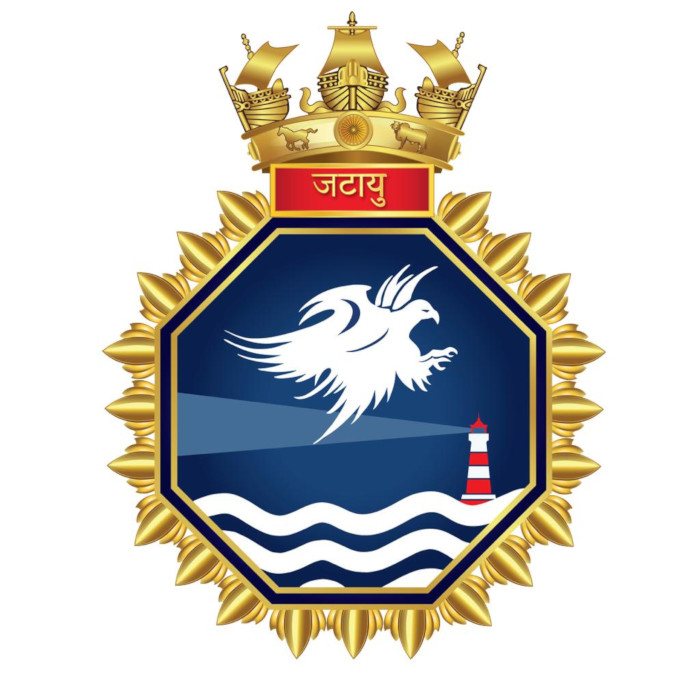
4. Gateway to Western Arabian Sea
Positioned strategically, INS Jatayu acts as a gateway to the Western Arabian Sea, enabling the Indian Navy to monitor and control maritime activities in this critical region.
5. First Responder Capability
As the first responder in the region, INS Jatayu ensures a rapid and effective response to emerging maritime threats or incidents, contributing to regional security.
6. Comprehensive Island Development
Beyond its military functions, INS Jatayu plays a key role in the comprehensive development of the Lakshadweep Islands, aligning with the government’s focus on the overall progress of these territories.
7. Extended Operational Surveillance
The base facilitates extended operational surveillance, providing the Indian Navy with heightened situational awareness, early threat detection, and effective response capabilities.
Deployment of BrahMos Missile
The integration of BrahMos missiles at INS Jatayu is a pivotal move aimed at enhancing India’s maritime defense capabilities in the Lakshadweep Islands. Here are key details regarding the BrahMos missile integration:
1. Critical Strategic Location
INS Jatayu, situated on Minicoy Island, holds immense strategic importance due to its proximity to crucial Sea Lanes of Communication (SLOCs) and the Nine Degree Channel in the Indian Ocean Region (IOR).
2. Surveillance and Defense Augmentation
BrahMos missiles are integrated into the naval base’s infrastructure to bolster both surveillance capabilities and coastal defense. This integration strengthens the Navy’s ability to monitor and respond to maritime threats effectively.
3. Extended Range Capability
BrahMos supersonic cruise missiles, with a range of approximately 450 km, provide an extended reach, allowing for swift and precise responses to potential threats in the region.
4. Deterrence Against Adversarial Presence
The deployment acts as a deterrent, discouraging any adversarial presence near India’s Exclusive Economic Zone (EEZ) and reinforces Minicoy’s role as a formidable gatekeeper of the Arabian Sea.
5. Flexibility in Responding to Threats
The BrahMos integration enhances the flexibility of naval operations, enabling rapid responses to a variety of maritime challenges, including piracy, illegal activities, and other security concerns.
6. Geopolitical Preparedness
In response to evolving geopolitical dynamics, the integration of BrahMos missiles ensures that INS Jatayu is well-equipped to address emerging security scenarios in the Indian Ocean, including potential threats from state and non-state actors.
7. Information Fusion and Maritime Domain Awareness
Surveillance assets, including BrahMos-equipped facilities, contribute to the Information Fusion Centre for Indian Ocean Region (IFC-IOR), enhancing maritime domain awareness and providing a strategic edge in the region.
8. Watchkeeper for Bharat
INS Jatayu, with BrahMos integration, becomes a vital ‘watchkeeper’ for India at the gateway of the Arabian Sea, actively monitoring and safeguarding against any unauthorized or adversarial activities.
9. Comprehensive Defense Infrastructure
The BrahMos integration is part of a broader plan for comprehensive development, ensuring that Minicoy Island becomes a well-fortified and secure hub, serving dual roles of defense and economic prosperity.
10. Technological Advantage
BrahMos, known for its precision and speed, provides INS Jatayu with a cutting-edge technological advantage, strengthening the Navy’s overall operational capabilities and readiness in the region.
What is BrahMos Missile?
The BrahMos is a powerful supersonic cruise missile that can be launched from various platforms, including land, ships, submarines, and aircraft. It’s a joint venture between India’s Defence Research and Development Organisation (DRDO) and Russia’s NPO Mashinostroyenia, forming BrahMos Aerospace. Here’s a breakdown of its key features:
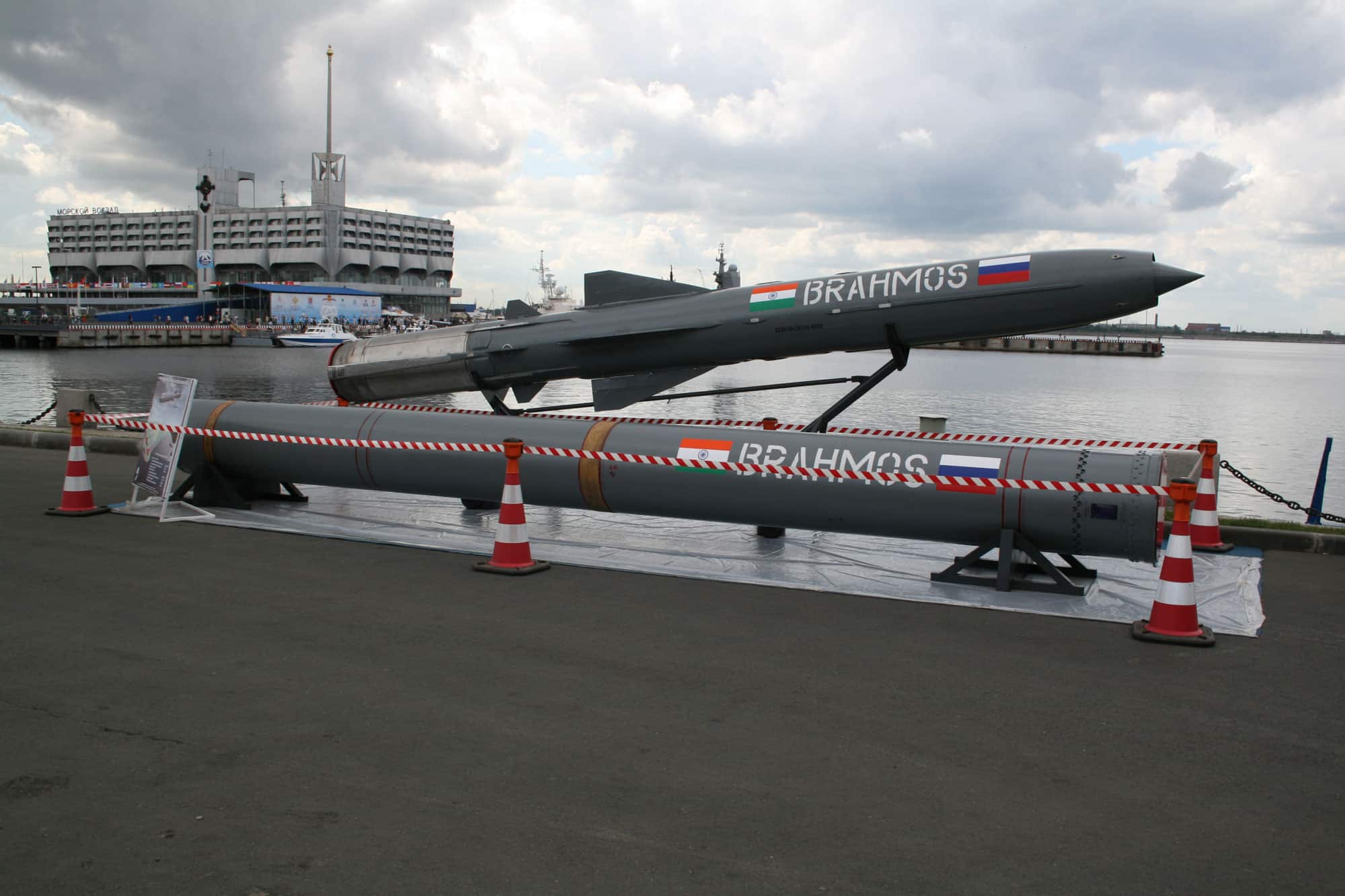
- Type: Supersonic Cruise Missile (Mach 3+)
- Range: Variants exist with a range of 290 km (180 mi) to 500 km (310 mi) depending on the launch platform.
- Launch Platforms:
- Land-based mobile launchers
- Ships
- Submarines
- Sukhoi Su-30MKI fighter jets (air-launched variant)
- Capabilities:
- High Speed: Its supersonic speed makes it difficult for air defense systems to intercept.
- Precision Strike: The BrahMos is known for its accuracy, making it effective for targeted attacks.
- Multiple Variants: There are land-attack, anti-ship, and air-launched variants for diverse strategic needs.
- Significance for India:
- Deterrence: The BrahMos’s presence enhances India’s deterrence against potential adversaries in the region.
- Power Projection: It allows India to project its military power further in the Indian Ocean.
- Technological Advancement: The BrahMos program signifies India’s progress in missile technology.
Features
BrahMos, the supersonic cruise missile, boasts several key features, making it a versatile and highly effective weapon system:
- Universal Applicability: Designed to be compatible with multiple platforms, BrahMos exhibits universality in its deployment across various military assets.
- “Fire and Forget” Operation: Operating on the “Fire and Forget” principle, BrahMos ensures simplicity in its usage, allowing the firing platform to launch the missile and focus on other tasks without the need for continuous guidance.
- High Supersonic Speed: BrahMos maintains a high supersonic speed throughout its entire flight, enhancing its rapid response capabilities and reducing the time taken to reach its target.
- Extended Flight Range: BrahMos is equipped with a long flight range, offering versatility through various flight trajectories. This capability allows it to engage targets effectively across different distances and scenarios.
- Low Radar Signature: Featuring a low radar signature, BrahMos minimizes its detectability, making it challenging for adversaries to track and intercept the missile.
- Shorter Flight Times: The missile’s shorter flight times contribute to lower target dispersion, ensuring quicker engagement and reducing the window of vulnerability for potential countermeasures.
- Pinpoint Accuracy: BrahMos achieves pinpoint accuracy, ensuring precise targeting, and its high lethal power, coupled with substantial kinetic energy upon impact, enhances its effectiveness in neutralizing threats.
Other Key Missile or Missile System in India
There are many key Missile or Missile system are there for the Defence of India & also for the taking the offensive steps for the security of India-
1. Agni-I to V (Ballistic Missiles)
The Agni series (Agni meaning “fire” in Sanskrit) is the backbone of India’s strategic missile arsenal. Developed by DRDO, these are land-based missiles with varying ranges.





Agni-I and II are classified as medium-range ballistic missiles, while Agni-III and IV fall under the intermediate-range category. The most advanced, Agni-V, is an intercontinental ballistic missile (ICBM) capable of striking targets over 5,000 km away. These missiles can be equipped with conventional or nuclear warheads, providing India with a credible deterrent against potential adversaries.
2. Prithvi (Short-range ballistic missile)
Prithvi, meaning “Earth” in Sanskrit, holds historical significance as India’s first indigenously developed ballistic missile. It’s a short-range, surface-to-surface missile with a range of around 350 km. Primarily designed for battlefield use, Prithvi can carry conventional warheads and is deployed with the Indian Army. Its mobility and accuracy make it a valuable asset for targeted strikes against enemy positions.

3. Shaurya (Medium-range ballistic missile)
Shaurya, meaning “valour” in Sanskrit, is a potent weapon in India’s missile arsenal. This road-mobile, medium-range ballistic missile boasts high maneuverability during flight, making it difficult for enemy air defense systems to intercept. With a range exceeding 700 km, Shaurya can carry conventional warheads and deter potential threats.

4. Akash (Medium-range surface-to-air missile)
Akash, meaning “sky” in Sanskrit, is a medium-range air defense missile system designed to counter various aerial threats. It can effectively engage fighter jets, helicopters, and unmanned aerial vehicles (UAVs) at ranges exceeding 25 km and high altitudes. Akash forms a crucial part of India’s multi-layered air defense network, safeguarding against aerial attacks.

5. Trishul (Short-range air defense missile)
Trishul, meaning “trident” in Sanskrit, is a low-altitude, short-range air defense missile system. It provides a protective shield against low-flying aircraft, helicopters, and UAVs at ranges of up to 9 km. This quick reaction weapon is particularly useful for defending against surprise air attacks and protecting critical infrastructure.
6. K-15 Sagarika (Anti-ship missile)
The K-15 Sagarika, meaning “oceanic” in Sanskrit, is a sea-launched, anti-ship missile designed to neutralize enemy warships and other naval targets. Launched from submarines or surface ships, the K-15 packs a powerful punch and boasts a range exceeding 200 km. This missile system strengthens India’s maritime defense capabilities by deterring potential threats at sea.
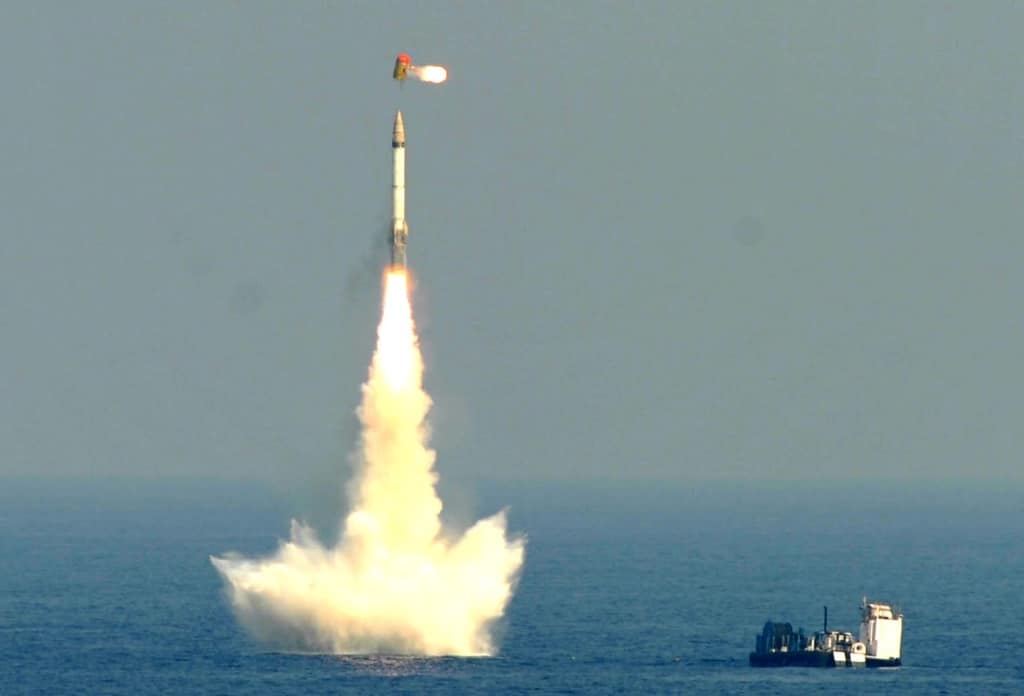
7. Nirbhay (Cruise missile)
Nirbhay, meaning “fearless” in Sanskrit, is a long-range, subsonic cruise missile offering strategic deterrence. Unlike ballistic missiles with a high, parabolic trajectory, Nirbhay flies at a lower altitude, making it harder to detect by radars. This versatile missile can carry conventional or nuclear warheads and strike targets with high precision over long distances exceeding 1000 km.

8. Shakti (Anti-tank missile)
Shakti, meaning “power” in Sanskrit, is a wire-guided, man-portable anti-tank missile system designed for close-quarter combat situations. Infantry soldiers can shoulder-launch the Shakti missile to destroy armored vehicles and fortifications within a range of around 1.5 km. Its ease of use and effectiveness against armored threats make Shakti a valuable asset for the Indian Army.

9. Helina (Anti-tank missile)
Helina, named after a mythical Indian divine weapon, is a third-generation, laser-guided anti-tank missile offering a significant leap forward in tank-destroying capabilities. Unlike wire-guided missiles like Shakti, Helina uses a laser beam for guidance, improving accuracy and allowing soldiers to take cover after launch. With a longer range exceeding 3 km and high armor penetration, Helina provides a decisive advantage against enemy armored formations.

10. Quick Reaction Surface-to-Air Missile (QRSAM)
The Quick Reaction Surface-to-Air Missile (QRSAM) is a cutting-edge air defense system designed for rapid response against fast-moving aerial threats. This all-weather system can engage fighter jets, UAVs, and cruise missiles at short ranges and high altitudes. The QRSAM’s quick reaction time, maneuverability, and multi-target engagement capability make it a vital component of India’s layered air defense network, particularly for defending against surprise attacks.
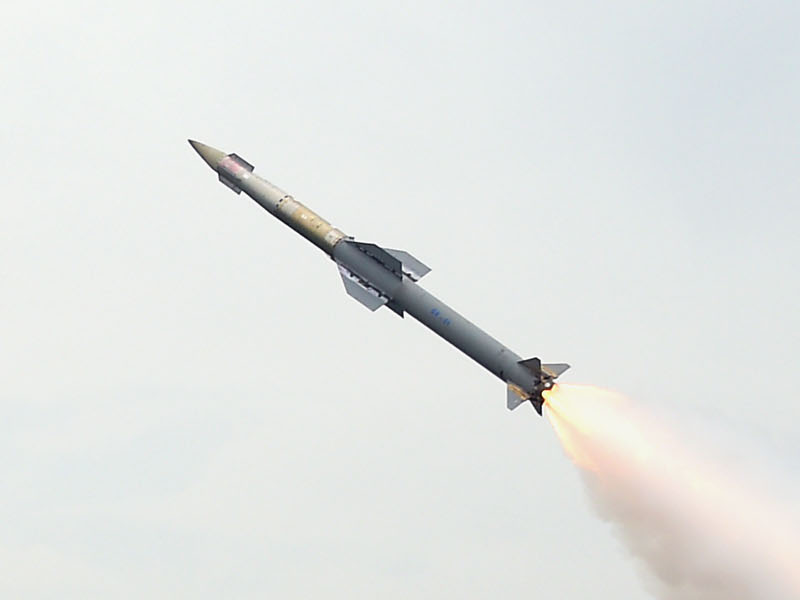
Key Fact about this New Naval Base of Indian Navy
We have added all the major facts about New Naval Base of Indian Navy at Minicoy Island-
| Key Aspect | Details |
| Location | Minicoy Island, INS Jatayu’s future base, deploying BrahMos missiles for strategic significance. |
| Strategic Significance | INS Jatayu acts as a static aircraft carrier, bolstering security in the Indian Ocean Region. |
| Security Footprint | Long-term plan strengthens India’s security presence near critical Sea Lanes of Communication. |
| Surveillance Augmentation | New radar facilities enhance surveillance, improving situational awareness for the Indian Navy. |
| Extended Range BrahMos | Supersonic cruise missiles offer flexibility with an extended range of about 450 km. |
| Geopolitical Importance | Heightened surveillance addresses rising maritime threats, terror, and piracy. |
| Strategic Deterrence | INS Jatayu serves as a watchkeeper, a static aircraft carrier, and a deterrent against adversarial presence. |
| Infrastructure Development | Karwar naval base witnesses infrastructure expansion for enhanced naval capabilities and accommodations. |
| Information Fusion | INS Jatayu contributes to the Information Fusion Centre for Indian Ocean Region (IFC-IOR), bolstering maritime domain awareness. |
| Tourist Potential | Minicoy’s dual role as a potential tourist paradise contributes to the island’s overall development. |
FAQs on this Development – UPSC Questions
Question-1: Why is INS Jatayu commissioned at Minicoy Island?
Answer. To enhance India’s security presence, surveillance, and operational capabilities in the strategically vital Lakshadweep islands.
Question-2: What is the strategic significance of Minicoy Island?
Answer. Located near critical Sea Lanes of Communication, it serves as a gateway to the Arabian Sea.
Question-3: How does INS Jatayu strengthen India’s security footprint?
Answer. It acts as a “static aircraft carrier,” providing a base for strategic operations, including BrahMos missile deployment.
Question-4: What capabilities does INS Jatayu bring to the region?
Answer. Enhanced surveillance, radar facilities, BrahMos missile deployment, and strategic deterrence against adversarial presence.
Question-5: Why is BrahMos missile deployment significant?
Answer. BrahMos missiles offer extended range (450 km), augmenting coastal batteries and providing flexibility in responding to threats.
Question-6: How does INS Jatayu contribute to maritime domain awareness?
Answer. It feeds into the Information Fusion Centre for Indian Ocean Region (IFC-IOR), enhancing situational awareness and countermeasure capabilities.
Question-7: What is the role of INS Jatayu in the Indian Ocean Region?
Answer. It serves as the “eyes and ears” of the Navy, addressing rising maritime threats, crime, piracy, and geopolitical developments.
Question-8: How does the development align with India’s geopolitical strategy?
Answer. It fortifies Minicoy Island, creating a formidable gatekeeper and supporting India’s focus on comprehensive development of islands.
Question-9: What facilities are planned at INS Jatayu, Minicoy Island?
Answer. Radars, jetties, airfield, and BrahMos missile deployment, aligning with a long-term capability development plan for the region.
Question-10: Who commands the first MH-60R multi-role helicopter squadron?
Answer. Captain M. Abhisheik Ram, an experimental test pilot with extensive experience, leads the INAS 334 ‘Seahawks’ squadron.
Question-11: What is the significance of commissioning INS Jatayu and INAS 334?
Answer. It strengthens India’s foothold, surveillance, anti-submarine warfare, and overall operational capabilities in the region.
Question-12: How does INS Jatayu contribute to anti-piracy and anti-narcotics operations?
Answer. It enhances the Indian Navy’s operational reach, making it a first responder in the region and supporting maritime security efforts.
Question-13: What’s the timeline for BrahMos missile deployment at Minicoy Island?
Answer. It’s part of a phased expansion plan; however, specific timelines for BrahMos deployment are not provided in the news.
Question-14: What’s the focus of infrastructure development at Karwar naval base?
Answer. The expansion includes major piers, residential towers, and enhanced facilities, reinforcing India’s naval capabilities and accommodations.
Question-15: How does INS Jatayu contribute to India’s defense against emerging threats?
Answer. Its deployment, along with BrahMos missiles and surveillance capabilities, safeguards India’s interests amidst evolving geopolitical dynamics.




One thought on “Brahmos Cruise Missile to be Deployed on INS Jatayu, New Naval Base in Minicoy Island – Everything You Need to Know”
Comments are closed.